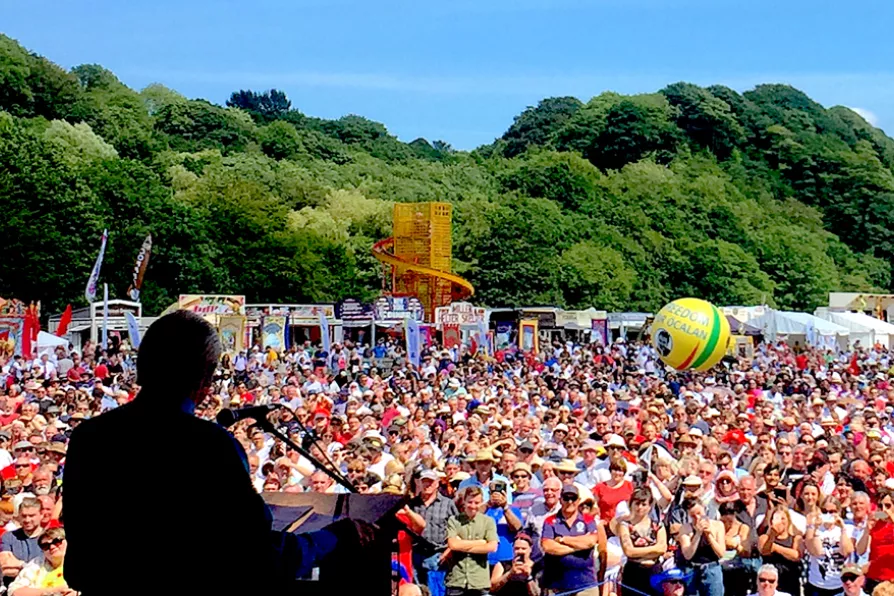RICHARD BURGON MP speaks to Ben Chacko about the Labour right’s complicity in the Mandelson scandal and the need for a total break with Starmerism if the party is to defeat Reform

 Dennis Skinner addresses Durham Miners Gala
Dennis Skinner addresses Durham Miners Gala
THE pits may have gone, but the spirit of Britain’s mineworkers, their families and their communities lives on — and nowhere more so than at the Durham Miners’ Gala.
Today we mark the 135th Durham Miners’ Gala, the Big Meeting, with a day of celebration and solidarity of the trade union movement and the working class.
It is our movement’s biggest event in Britain, and one of the biggest in Europe.

The Home Secretary’s recent letter suggests the Labour government may finally deliver on its nine-year manifesto commitment, writes KATE FLANNERY, but we must move quickly: as recently as 2024 Northumbria police destroyed miners’ strike documents

The Gala’s core message of working-class solidarity offers renewed hope and provides the antidote to the anti-worker policies of Reform UK, argues IAN LAVERY MP

Durham Miners’ Association general secretary ALAN MARDGHUM speaks to Ben Chacko ahead of Gala Day 2025











